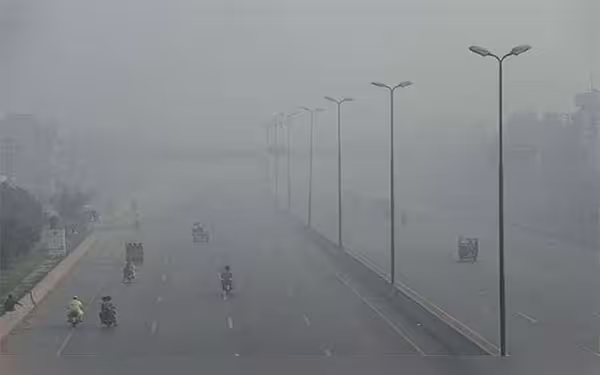Thursday, November 7, 2024 07:45 AM
Section 144 Enforced in Islamabad to Tackle Air Pollution
- Section 144 targets key air pollution sources.
- Ban on smoky vehicles and crop residue burning.
- Public awareness essential for clean air initiatives.
 Image Credits: dunyanews.tv
Image Credits: dunyanews.tvSection 144 imposed in Islamabad to combat air pollution by banning smoky vehicles and crop burning, addressing serious health risks.
In recent times, air pollution has emerged as a significant concern in urban areas across Pakistan, particularly in the capital city of Islamabad. The increasing levels of air pollutants and poisonous gases not only tarnish the air quality but also pose serious health risks, especially for individuals with pre-existing respiratory conditions. Recognizing the urgency of the situation, the Islamabad Additional District Magistrate has taken decisive action by imposing Section 144, a legal measure aimed at curbing activities that contribute to air pollution.
The newly issued notification specifically targets several key sources of air pollution. It bans the operation of smoky vehicles, which are notorious for releasing harmful emissions into the atmosphere. Additionally, the burning of crop residues, a common practice among farmers, is prohibited under this regulation. This practice not only contributes to air pollution but also affects the health of nearby residents. Furthermore, brick kilns, which often emit thick smoke, are also included in the ban. These measures are crucial in the fight against air pollution, as they address some of the primary contributors to the deteriorating air quality in the capital.
Implementing Section 144 is a step in the right direction, but it is essential for the authorities to ensure strict enforcement of these regulations. Public awareness campaigns can play a vital role in educating citizens about the importance of clean air and the health risks associated with pollution. Moreover, it is imperative for the government to explore sustainable alternatives for farmers and industries that rely on practices contributing to air pollution. For instance, promoting the use of cleaner technologies in brick kilns and encouraging farmers to adopt environmentally friendly methods for crop residue management can significantly reduce pollution levels.
While the imposition of Section 144 is a commendable effort to combat air pollution in Islamabad, it is only the beginning. Collective action from the government, industries, and the public is necessary to create a healthier environment. Everyone has a role to play in this fight against air pollution, and by working together, we can ensure a cleaner, safer future for all. Let us all breathe easier and strive for a greener Pakistan.













